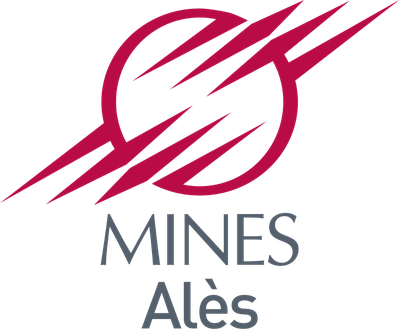
The "Chair of Operations Research (OR)“ at the Bundeswehr University, Munich (UniBw) focuses mainly on the research field of "Safety and Security". Key disciplines in this context include decision analysis, data mining, network communication, and security of critical infrastructures. The Chair of OR is also responsible for the "Modelling Operations Research Simulation and Experimentation“ (MORSE) project, runs the "Critical Infrastructures and Systems Analysis“ research programme, and is a cooperation partner of the Naval Postgraduate School Monterey/USA in the international experiment "CENTIX" (Centre for Network Innovation and Experimentation) within the scope of which new technologies and methods are being developed with the aim of improving cooperation on, and coordination of, all elements of risk and crisis management through training.
The COMTESSA centre of expertise affiliated to the Chair of OR specialises in applying "soft computing" to crisis and emergency management. Further research projects have included “Intelligent Networks and Security Structures” (INESS), “Critical Infrastructures and System Analysis” (CRISYS), and "Experimental Process Optimisation“ (EXPO). Expertise is also available in the field of optimisation procedures, particularly heuristics. As part of an EU project titled "Network for the Economic Analysis of Terrorism“ (NEAT), the Chair of OR conducted a short study on the topic of "An Economic Impact Analysis on Terrorist Attacks against Public Transport Networks“ (October 2009), which looked at the economic repercussions of terrorist attacks on local public transport. That short study can be regarded as a precursor/feasibility study for the present research project.

Cologne University of Applied Sciences (THK)" is the largest university of its type in Germany. Around 400 professors teach 21,000 students. Its eleven faculties and the Institute for Tropical Technology offer more than 110 fields of study, ranging from engineering, to the humanities and social sciences, to applied sciences. THK is a full member of the European University Association (EUA) and belongs to the UAS7 German Universities of Applied Sciences network as well as to the Innovation Alliance of North Rhine-Westphalian Universities of Applied Sciences. The university is also an environmentally oriented institution, audited and certified to the EMAS (European Eco-Management and Audit Scheme) and to ISO 14001, as well as certified as family-friendly.
The Institute of Rescue Engineering and Civil Protection (IRG) within the Faculty of Process Engineering, Energy and Mechanical Systems (F 09) encompasses all the technical and organisational elements of hazard prevention relating to the rescue of people, the detection of hazards and the planning of their prevention. This also includes regulatory and occupational risk and crisis management as well as social and methodical skills for managerial personnel. In joint research projects the focus is on scientific analysis and on making user expertise available. Students on the University's Rescue Engineering course are also actively integrated into research projects through the assignment of topic-related project papers and bachelor and master theses.

In 2010, various research activities of the Bonn-Rhein-Sieg University of Applied Sciences (HBRS) were pooled within the newly founded Institute for Detection Technologies (IDT) "Making hazards visible, averting dangers" is the guiding principle of our efforts in research and teaching. The development and evaluation of new chemical sensors and detection techniques for identifying and localising hazardous materials and items containing hazardous materials - in particular explosive substances, drugs, mines and explosive devices - is a central field of activity of the Institute for Detection Technologies in the context of averting threats to people and institutions. Extensive research projects in the subject areas of sensor systems, analysis and the detection of explosive substances have been conducted over the past years. It has been possible to build up specific core skills and expertise particularly in the field of sensor and detector assessment and in the development and application of trace analysis procedures.
Work on suitable development services within the scope of national and international research and technology (R&T) projects is ongoing in cooperation with other research institutes, industry, as well as authorities and organisations tasked with providing security and protection. Our expertise in this regard lies in the characterisation of explosive systems and the development of new test and detection techniques, focusing on mobile and standoff-capable sensor platforms, on networks with chemical sensors, and on the research field of "living sensors - explosives detector dogs" for detecting explosive substances in civilian and military scenarios. The Institute has state-of-the-art analysis techniques and detectors at its disposal, especially for the field of trace analysis.

The Federal Institute for Materials Research and Testing (BAM) is a scientific / technical higher federal authority within the area of responsibility of the Federal Ministry for Economic Affairs and Energy. The technological capacity of the Federal Republic of Germany is based to a high degree on competitive products of high quality which has to be assured through innovative measurement and testing technology. The BAM is, according to its founding decree, responsible for the advancement of safety in technology and chemistry, for the implementation and evaluation of physical and chemical tests for materials and facilities including the provision of reference methods and reference materials, for promoting the transfer of knowledge and technology in the BAM's fields of work, for the co-development of statutory regulations such as laying down safety standards and limits, and for giving guidance and advice to the Federal Government, industry and national and international organisations in the fields of material technology and chemistry.
The fields of activity of the Institute's Safety of Structures Department range from building materials to construction engineering, to semi- and non-destructive testing in the building sector, to fire safety engineering. This department advises federal ministries, industry - especially the construction industry, building trade and construction chemicals chemistry - as well as national and international organisations and research institutions in the building sector. A particular activity of the department is determining the long-term behaviour of building materials, components and structures (life span assessment) and their resilience under complex exposure conditions, including the development of relevant assessment methods.

HBI Haerter GmbH is a firm of consulting engineers. The focus of its activities is mainly on the planning, project engineering and implementation of tunnel ventilation systems, on ambient air assessments, on safety issues, and on the aerodynamics and thermodynamics of road and railway tunnels. HBI covers the entire range of possible tasks associated with tunnel ventilation projects - from initial feasibility studies, measurements, in-depth studies and execution, to refurbishments and optimisations during ongoing operation.
With more than 800 successful reference projects to its name, HBI is an international leader in the planning of tunnel ventilation systems. Quality, innovation and reliability are the hallmark of HBI's services.

Ecole des Mines d’Alès (EMA) is a French institute for technology and applied sciences under the supervision of the French Ministry for Economic Affairs, Finance and Industry. Its research centre, the Laboratoire de Génie Informatique et d’Ingénierie de Production (LGI2P) founded in 1994, specialises in numerical intelligence. The main topics covered by the LGI2P are new information and communication technologies, in which regard the research centre concentrates on conceptualisation, implementation, optimisation of technical systems, socio-technical systems, and management of collaborative processes.

The Institut Français des Sciences et Technologies des Transports, de l'Aménagement et des Réseaux (IFSTTAR) came into being on 1 January 2011 through the Laboratoire Central des Ponts et Chaussées (LCPC) merging with the Institut National de Recherche sur les Transports et leur Sécurité (INRETS). As a public research institute, IFSTTAR is answerable to two ministries, the Ministry for Ecology, Sustainable Development and Energy and the Ministry for Higher Education and Research.
IFSTTAR is the largest European institute for transport research. It carries out research work and offers its expertise as services with a view to improving the living conditions of the population and promoting sustainable development for our societies. Its main task consists in exploring future developments in transportation and its infrastructures, the mobility of people and goods, safety, regional planning, implications for the environment, and possible savings in energy and material.

The central police laboratory within the Parisian Préfecture de Police, the Laboratoire Central de la Préfecture de Police (LCPP), is a recognised scientific and technical organisation. The work at the LCPP focuses mainly on environmental protection and its influences as well as on CBRN defence. The laboratory initiates investigations and primarily undertakes the following tasks: protection of the environment and health (local measurements of pollutants (water, air, soil); measurements after carbon monoxide poisoning and investigations after accidental poisoning); fire protection (fire prevention and investigations after suspicious fire incidents); criminal investigations (conduct of investigations and perpetuation of evidence after explosions, fires, acts of terror, electrical accidents, and technical investigations); and neutralisation (disposal of explosive ordnance, suspicious substances and weapons).

In 2006, the TNO (the Netherlands' organisation for applied scientific research) and the CTICM (the French scientific and technical institute for steel construction) decided to merge their respective fire prevention activities - representing more than 60 years of experience in total - into a single organisation: Efectis. A major player in the science of fire prevention, Efectis offers comprehensive expertise on fire safety for testing and modelling, certification and inspection world-wide. So as to create steadily safer living environments, Efectis teams are expanding their skills continuously to include other safety domains such as structural integrity, pathology assessment of materials, components and systems, and predicting the life expectancy and durability of new and old buildings, monuments and infrastructures. EFECTIS France, as the largest firefighting laboratory in Europe, is an important player at every step (planning, construction, operation, decommissioning) in fire behaviour assessment, containment, and fire compartmentation, as well as for nuclear safety equipment.